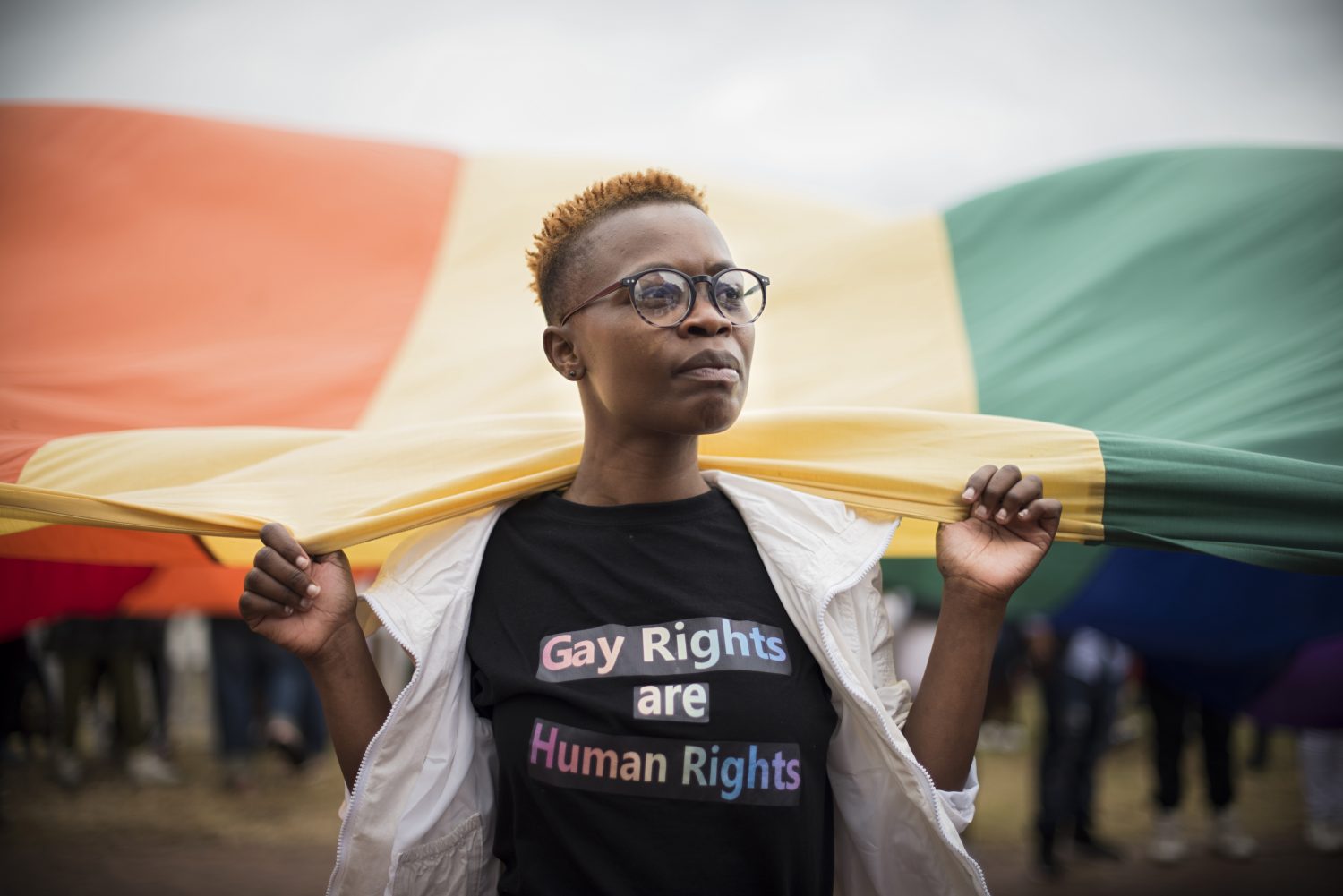
Challenges that Hinder Accountability for LGBTIQ+ Torture in Africa
Today, REDRESS and the Centre for Human Rights at University of Pretoria held a roundtable discussion on the challenges faced in documenting, investigating and addressing torture against LGBTIQ+ persons in Africa.
Organisations and practitioners from eight different African countries contributed to an insightful discussion and suggested specific recommendations for legislative and policy reforms to States, the African Commission on Human and Peoples’ Rights and other relevant stakeholders. The discussion will inform REDRESS’ upcoming report on accountability for LGBTIQ+ torture in Africa.
LGBTIQ+ Torture in Africa
LGBTIQ+ persons in Africa and worldwide are disproportionately affected by incidences of violence which can, and often do, amount to torture. In 2014, the African Commission condemned the increasing incidences of violence and other human rights violations perpetrated by State and non-State actors against LGBTIQ+ individuals, and called on States to end all acts of violence and abuse, including acts committed by State officials (Resolution 275).
However, States still fail to protect LGBTIQ+ persons, and the discriminatory element of the violence is often not accounted for in national laws or is met with hostility as a result of misinformation, misunderstanding and stigmatisation.
Factors that Hamper Accountability Efforts
In this roundtable discussion, numerous factors were identified which contribute to there being little or no accountability for torture perpetrated against LGBTIQ+ persons in African countries.
Firstly, the lack of information about the violence facing the LGBTIQ+ community is common across many States. This exacerbates difficulties in understanding the nature and scale of the problem, and therefore compounds the challenges faced in addressing it.
Secondly, in a context of overall hostility towards the LGBTIQ+ community (including in some States with criminalisation of same-sex conduct), there is a general fear of reporting crimes amongst victims, especially where the crime was motivated by discrimination on the basis of sexual orientation or gender identity. Participant organisations also noted that a lack of victims’ knowledge about their rights and the fact that instances of violence are often dealt within the private sphere contribute to underreporting.
Thirdly, participants stressed that victims who do report instances of violence commonly face harassment, violence and further discrimination by law enforcement officials. The lack of clear and independent complaint mechanisms, combined with a discriminatory culture against LGBTIQ+ persons entrenched in State institutions, creates a dynamic of impunity. There is also a general lack of understanding of the issues affecting LGBTIQ+ persons by State officials involved in investigations and procedures for accountability, including the police, prosecutors and judges.
Finally, at the regional level, practitioners pointed out the urgent need for the African Commission to effectively monitor and implement Resolution 275, which condemns violence against LGBTIQ+ persons and calls upon States to increase the protection of the LGBTIQ+ community, and also demands that steps be taken to investigate and hold perpetrators accountable.
What More Can be Done?
Some key recommendations to States, the African Commission and civil society discussed in this roundtable were:
- Legislative reforms to strengthen the legal protection of LGBTIQ+ persons against torture, including decriminalising same-sex conduct and criminalising torture.
- Policy reforms to enhance investigative efforts and improve mechanisms of accountability;
- Educational initiatives: training State officials in consultations with LGBTIQ+ organisations, and undertaking public awareness campaigns on LGBTIQ+ violence.
Specific recommendations and a detailed analysis of these issues will be examined in REDRESS’ upcoming report on accountability for torture against LGBTIQ+ persons in Africa.
Photo by: Marcus Rose/Panos Pictures.
